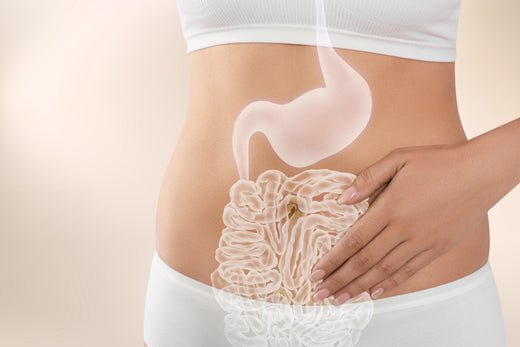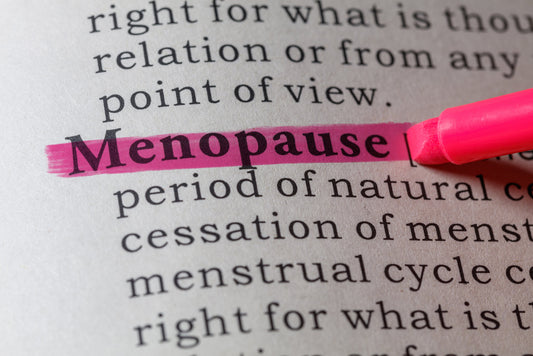The connection between your gut and hormones is stronger than you think. It turns out, there’s an intricate and bi-directional relationship between gut bacteria and hormone regulation, particularly estrogen. Understanding the estrobolome and its impact on hormone levels can give us insights into managing various health conditions, including those related to hormonal balance.
What is the Estrobolome?
The estrobolome is a collection of gut bacteria specifically involved in the metabolism of estrogen. This subset of the microbiome plays an important role in regulating the levels and activity of estrogen in the body. Essentially, the estrobolome helps to metabolize and process estrogens that enter the gut from the bloodstream, impacting how these hormones are absorbed and utilized.
The estrobolome’s ability to regulate estrogen levels can have significant implications for various functions, including reproductive health, bone density, and cardiovascular health.
How Does the Estrobolome Work?
Estrogen, particularly estrone and estradiol, can be metabolized by the gut microbiota through a process involving beta-glucuronidase enzymes produced by specific bacteria. These enzymes break down estrogens that are excreted into the bile, making them available for reabsorption into the bloodstream. This process, known as enterohepatic circulation, affects overall estrogen levels in the body.
A well-balanced estrobolome ensures that this metabolism occurs efficiently, helping to maintain appropriate levels of estrogen. Disruptions or imbalances in the gut microbiome can impact this process, potentially leading to hormonal imbalances and other related health issues.
The Impact of the Estrobolome on Hormone Levels
-
Regulating Estrogen Levels
One of the primary functions of the estrobolome is to help regulate estrogen levels. A well-functioning estrobolome – the portion of the gut microbiome that influences estrogen metabolism and how much estrogen is available in the bloodstream – can help prevent excessive estrogen levels, which are associated with conditions like estrogen-dominant cancers, endometriosis and PMS.
-
Managing Hormonal Fluctuations
The estrobolome also plays a role in managing hormonal fluctuations, which can be particularly beneficial during perimenopause and menopause. Imbalances in gut bacteria can exacerbate hot flashes and mood swings in perimenopause. A balanced estrobolome can help mitigate these symptoms by stabilizing estrogen levels.
-
Influencing Vaginal Health
Estrogen levels have a direct impact on vaginal health. Low estrogen levels can lead to vaginal dryness, discomfort, and an increased risk of infections. Maintaining a healthy estrobolome can support vaginal care by ensuring stable estrogen levels, which is essential for maintaining healthy vaginal tissues and lubrication.
-
Supporting Metabolic Health
Estrogen also plays a role in metabolic health, influencing fat distribution and insulin sensitivity. Imbalances in estrogen levels can contribute to metabolic issues, including weight gain and increased risk of diabetes. A well-functioning estrobolome helps regulate estrogen levels, potentially supporting better metabolic health and reducing the risk of metabolic conditions.
How to Support a Healthy Estrobolome
Maintaining a healthy estrobolome involves supporting overall gut health through various lifestyle and dietary choices:
-
Eat your vegetables (yogurt too)
A diet rich in fiber, prebiotics, and probiotics can support the health of the gut microbiome, including the estrobolome. Foods like fruits, green leafy vegetables, whole grains, and fermented products like yogurt and kefir provide the nutrients needed for beneficial gut bacteria to thrive.
-
Get some Probiotics
Probiotics are beneficial bacteria that can help balance the gut microbiome and support the estrobolome. Probiotics for vaginal health, in particular, can be beneficial for maintaining vaginal health as well as gut heath. Incorporating probiotic-rich foods or supplements into your routine may help support a healthy estrobolome and improve hormonal regulation as a result.
-
Avoid excess sugar and alcohol
Certain lifestyle factors can disrupt the estrobolome and overall gut health. Excessive alcohol consumption, a high-sugar diet, high levels of stress, and the use of antibiotics, can alter the gut microbiome and impact estrogen metabolism. Reducing exposure to alcohol and sugar and managing stress can help maintain a healthy estrobolome.
The estrobolome represents a critical link between gut bacteria and hormone regulation, particularly estrogen. Understanding and supporting this microbiome component can have significant implications for managing hormone levels, improving vaginal health, and enhancing overall well-being. By adopting a healthy lifestyle, including a balanced diet, probiotics, and regular physical activity, you can support a healthy estrobolome and promote optimal hormonal balance.
As research into the estrobolome continues to evolve, staying informed about how gut health influences hormone levels can empower you to make proactive decisions for your health, especially during pregnancy, perimenopause and menopause when hormone levels fluctuate the most.
![]()
BEST supplements are formulated with the most effective, science-backed ingredients out there, and nothing else. No fillers, no false promises, and no B.S.
Just the right doses, delivered the right way, with results that actually matter.
Because your BEST health starts with the BEST standards. And we’re here to deliver both.
*These statements have not been evaluated by the Food and Drug Administration. This product is not intended to diagnose, treat, cure, or prevent any disease.









